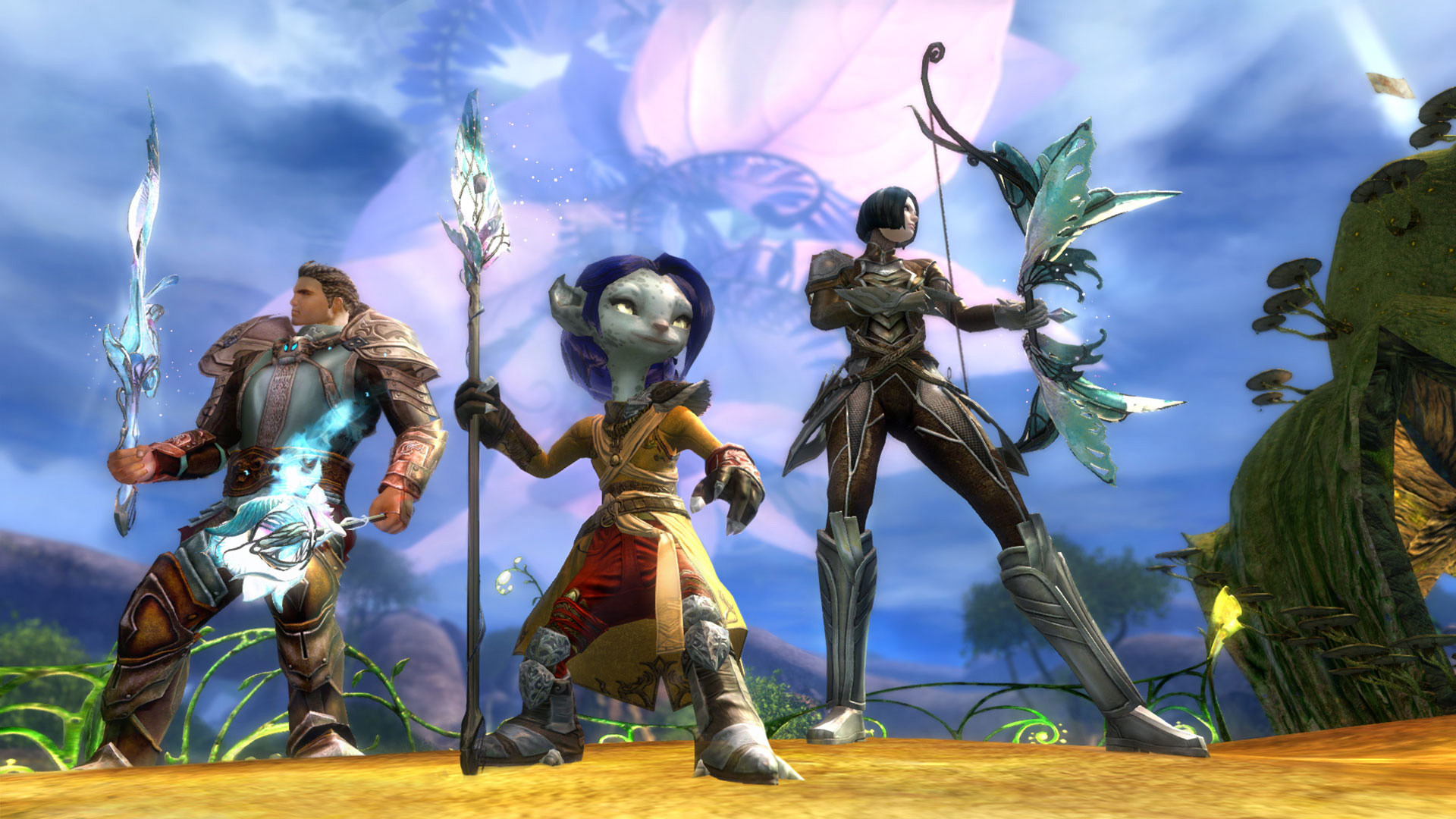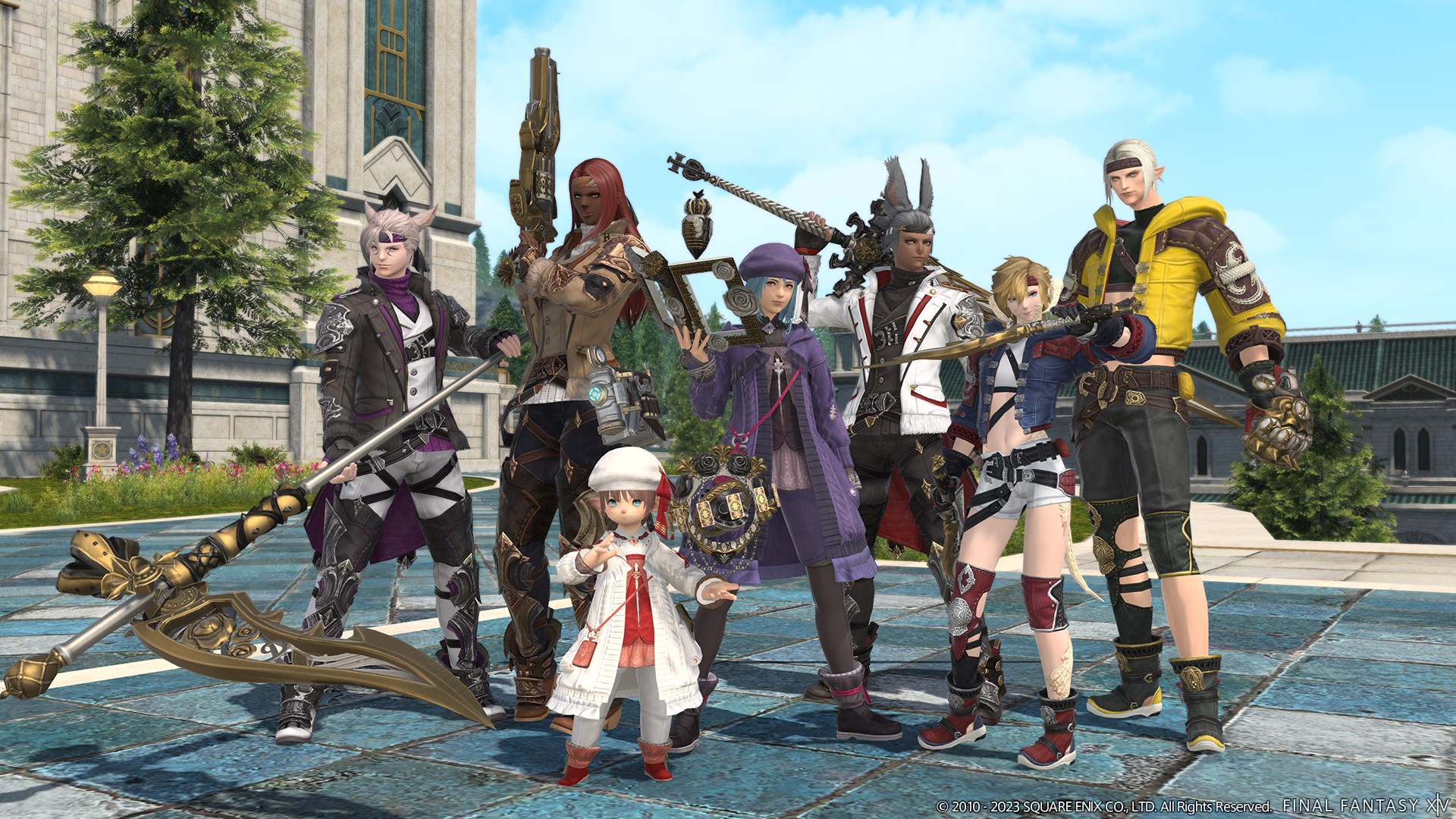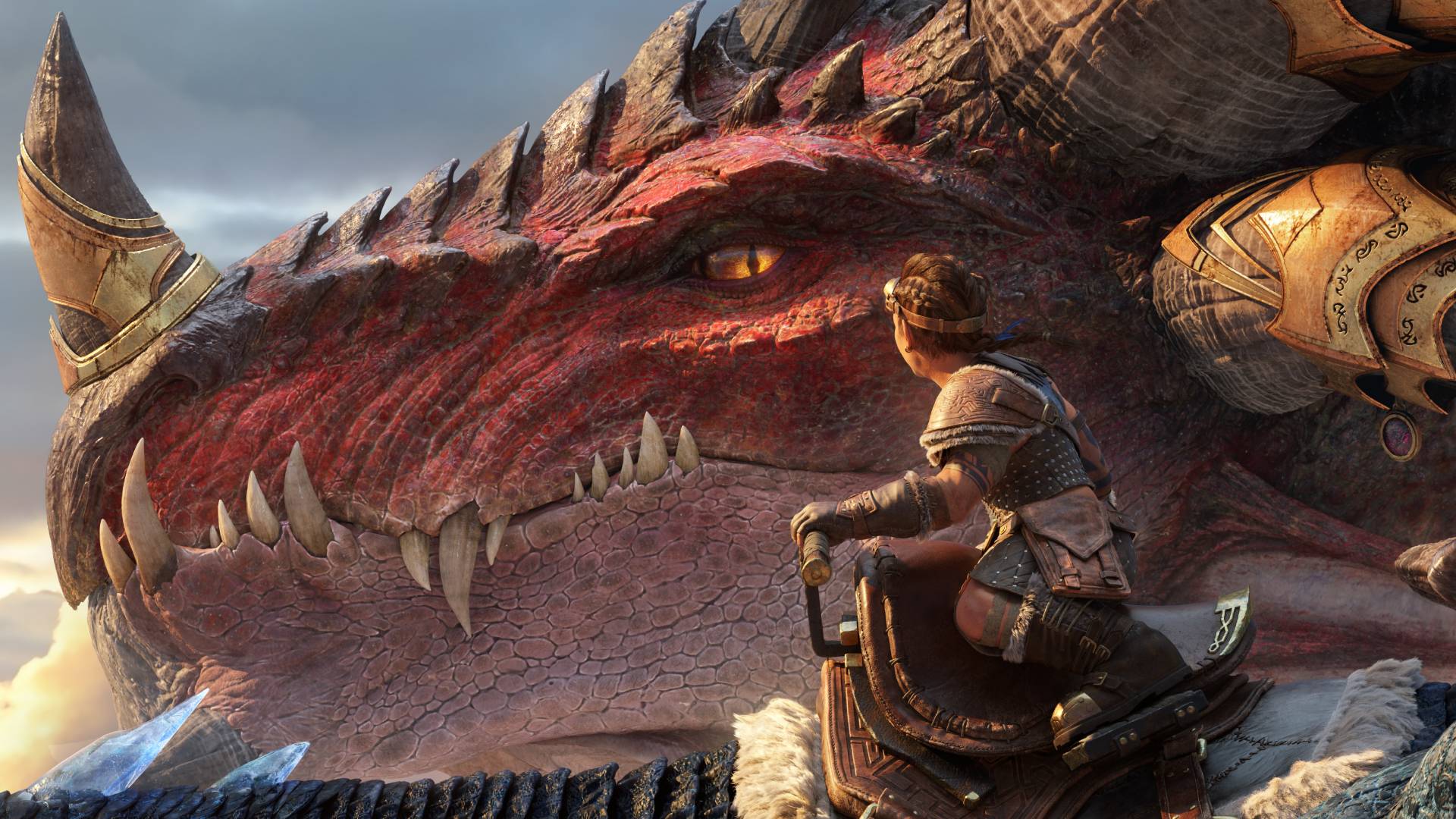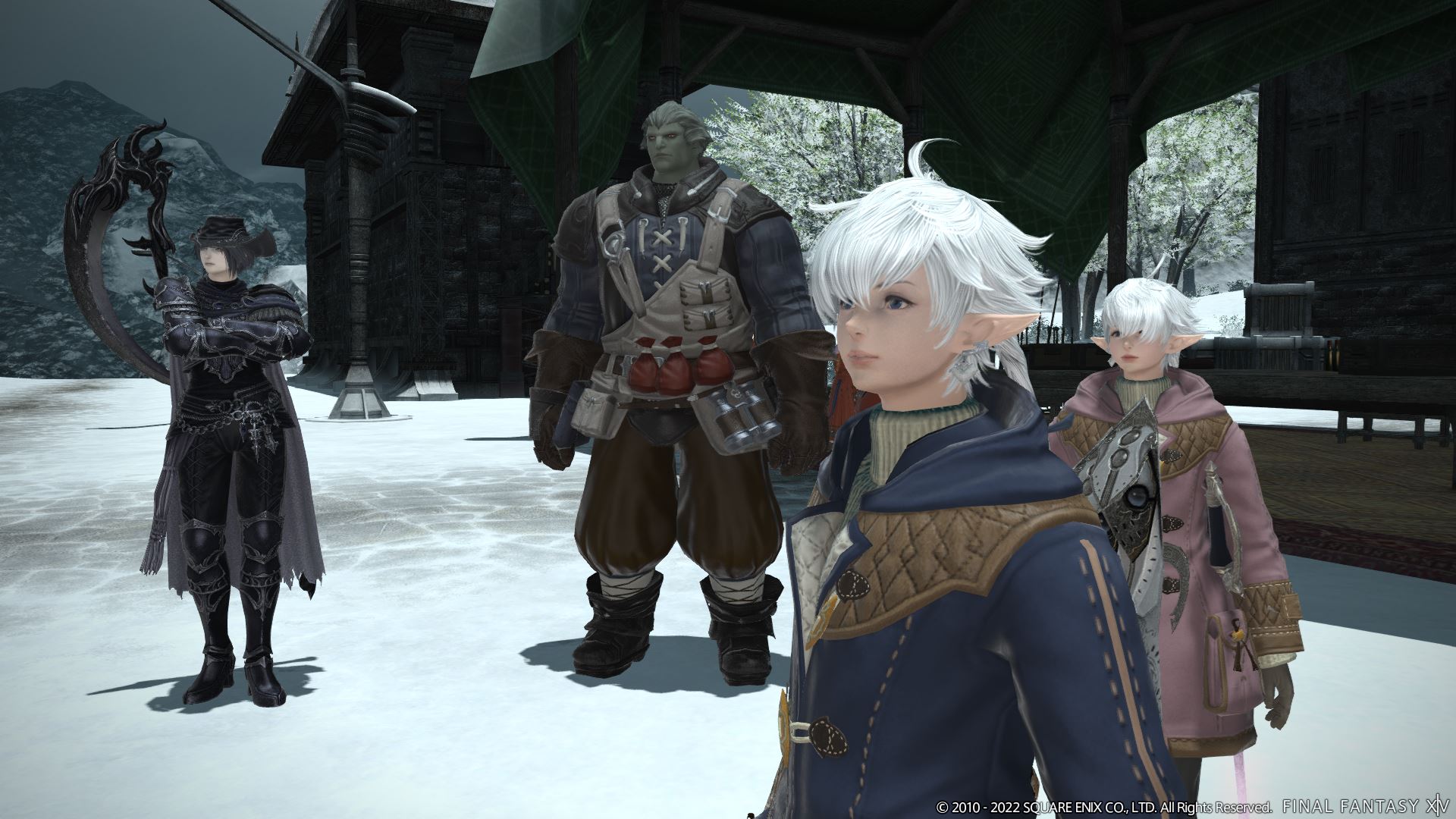From World of Warcraft to Final Fantasy 14, level boosts make MMOs worse
Levelling the playing field

Sign up for breaking news, reviews, opinion, top tech deals, and more.
You are now subscribed
Your newsletter sign-up was successful
Guild Wars 2 is one of the more refreshingly modern takes on the MMO genre. Its lush environments are full of players banding together in the spirit of fantasy adventure. Exploration, world events, and single-player storylines are the name of the game, as ArenaNet does an impressive job of weaving massively multiplayer elements amongst story-driven RPG elements.
Before long, I found myself curious enough to give the game a go. Suitably impressed by the first few story chapters, I shelled out for the expansions, keen to see what else might be on offer. It was here the trouble began. For my purchase included a complimentary level skip token. Hungry for power, I clicked it. This, it turns out, was a big mistake.
Thrust to level 80, I found myself overwhelmed by choice, both in terms of character customization and available story content. Do I play chronologically, or do I indulge in the more recent, more technically impressive expansions? What do all these fancy new words mean, and why do people keep calling me “commander”? Decision paralysis was beginning to set in, so I logged off and played something else.
What do all these fancy new words mean, and why do people keep calling me “commander”?
Eventually, I returned, resolving instead to play the content in order as a remedy to my confusion. Sure, I was vastly over-leveled, but the playful storytelling and fleshed-out fantasy setting were more than enough to keep me interested.
By giving me the chance to skip all of this introductory content, Guild Wars 2 had shot itself in the foot. From Final Fantasy 14 to World of Warcraft, the very best MMOs are renowned for their immersive settings and breadth of content. Without a gentle on-ramp, these universes can easily become overwhelming for newcomers.
Learning cliff

More often than not, level boosts in MMOs are used as a band-aid to make up for what some perceive as weaker content leading up to the more recent releases. On paper, it allows players to jump in instantly. However, in practice it can lead to a form of content vertigo, alienating new arrivals.
Level boosts seem to betray a lack of confidence in a title’s earlier content which is often unearned. Take Guild Wars 2, for instance. Though over a decade old, the personal storyline that each player character gets to enjoy at lower levels is a charming treat, carefully expounding on the rules of the world as well as the stakes of the wider narrative. Tailored to your character’s backstory choices, these quests offer nuggets of exposition, not only showing off the wider world but doing so from a specific in-universe point of view, a technique that does wonders for immersion. My noble-born human has a wildly different view of the world to my woodland-dwelling tree-elf - a contrast that’s reflected beautifully in the story.
Sign up for breaking news, reviews, opinion, top tech deals, and more.
Level boosts seem to betray a lack of confidence in a title’s earlier content which is often unearned
Final Fantasy 14 is not dissimilar. Though certainly not as gripping as the most recent expansions, the vanilla leveling experience is far from dull, and does a great deal to introduce the rules that the latter story content uses to build its dramatic stakes. Over the earlier missions, we get to grips with Eorzea’s city-states, as well as the threat of the Garlean Empire to the West. All of these introduce plot threads upon which the game continues to tug all the way up to current content.
In short, both titles would do well to have more confidence in their earlier material.
Golden oldies

The level boost, therefore, is a quick fix for a structural problem in the MMO formula, making up for a lack of confidence and, perhaps, a lack of relative quality, when it comes to early content. The level boost is an inelegant solution for these problems, undermining narrative pacing at the cost of player enjoyment.
If the best RPGs teach us a single lesson, it’s that power and status for a player character feel best when they are earned. Upon reaching max level in Guild Wars 2, NPCs reverently referred to my character as the “Pact Commander”, an illustrious title for which I had no frame of reference. Not only was it confusing, but I also felt like a fraud. I’d not put in the work to earn the respect of these NPCs - all I’d done was press a single button.
Level boosts are the opposite of storytelling
In this way, level boosts are the opposite of storytelling. Given that MMORPGs thrive on the narratives they build, you can see the structural problem that this mechanic presents.
The most obvious way for developers to circumvent this problem is to give their old content some love, bringing it up to par with their more modern offerings. Final Fantasy 14 did this back in 2020 with patch 5.3 where the team massively streamlined the main story quests in the vanilla game, as well as redesigning a bunch of lower-level content to make it more appealing for players across the board.
The move was broadly successful, causing a resurgence of interest in this updated content. While a time-consuming process, this move preserved the core narrative of Final Fantasy 14’s first act, while also streamlining affairs to appeal to modern sensibilities.
However, this sort of improvement can be difficult to execute. World of Warcraft famously streamlined its leveling content in the Shadowlands expansion, allowing players to select a single previous expansion to play through before hitting more recent questlines. While preferable to the multi-expansion slog that came before, this did little to remedy the patchwork nature of World of Warcraft’s story. That said, the update did come with a well-crafted starting experience that does a great deal to gently introduce new players to Blizzard’s fantasy world - a welcome change and a strong example of elegant modernization in an older MMO.

Still, the update was certainly a step in the right direction and goes to show that attention paid by developers toward old content can pay out in a big way. While a useful tool for veterans looking to level alt characters, level boosts do a disservice to old content which can often be stronger than many give it credit for, especially in the cases of Guild Wars 2 and Final Fantasy 14.
As gaming’s slew of remakes teaches us, old doesn’t mean bad. With a little bit of care and attention, even the most anachronistic aspects of an MMO can be streamlined and brought in line with modern expectations. It takes work and the results aren’t always perfect, but love, authenticity, and hard work will always trump a quick fix in my book. After being badgered by a friend for a matter of years, I eventually installed Guild Wars 2.
Looking to get more multiplayer in your life? Check out our list of the best co-op games. Alternatively, have a look at our list of upcoming games to see what's on the horizon.

An editor and freelance journalist, Cat Bussell has been writing about video games for more than four years and, frankly, she’s developed a taste for it. As seen on TechRadar, Technopedia, The Gamer, Wargamer, and SUPERJUMP, Cat’s reviews, features, and guides are lovingly curated for your reading pleasure.
A Cambridge graduate, recovering bartender, and Cloud Strife enjoyer, Cat’s foremost mission is to bring you the best coverage she can, whether that’s through helpful guides, even-handed reviews, or thought-provoking features. She’s interviewed indie darlings, triple-A greats, and legendary voice actors, all to help you get closer to the action. When she’s not writing, Cat can be found sticking her neck into a fresh RPG or running yet another Dungeons & Dragons game.